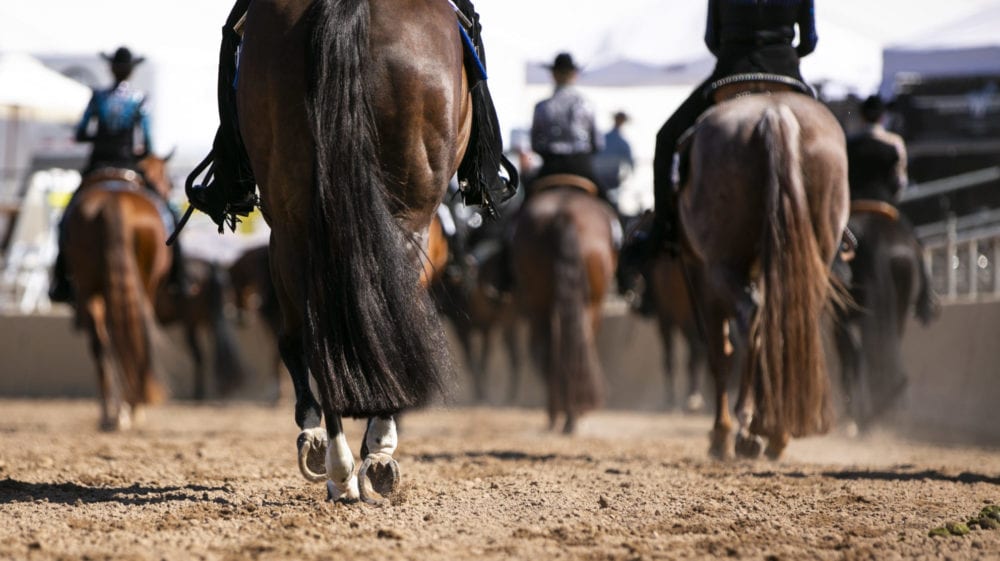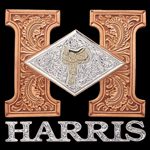A trainer who believes in their riders is a crucial component to a successful show career. They wear many different hats – coach, miracle worker, counselor, friend, and so much more. A great coach can make the experience of horse showing rewarding, challenging, and (most importantly) fun.
Trainers are people too. Sometimes personalities clash, or unfortunate events happen. Spotting the red flags before things go from bad to worse can help make a clean transition between programs.
What happens when the trainer does not “mesh” with the client? How do you know when it is time to move on? What are these red flags?
GoHorseShow talked with several knowledgeable horsewomen about the signs for when it may be time to find a new training program.
Lack of communication
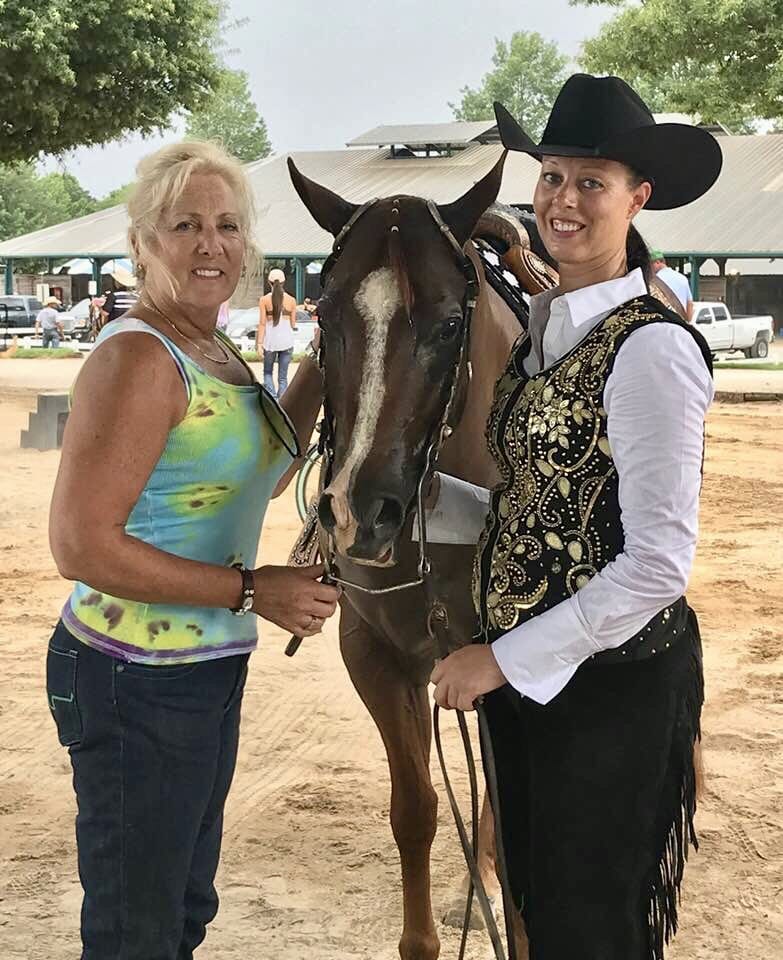 Communication is key. An exhibitor cannot train effectively, achieve their goals, or enjoy the sport without clear communication from their coach. Trainer Adrienne Dickerson (pictured far right) of Mount Airy, North Carolina, comments, “In my opinion and experiences, when communication becomes unclear between customer and trainer, then, I think it’s time to part ways.”
Communication is key. An exhibitor cannot train effectively, achieve their goals, or enjoy the sport without clear communication from their coach. Trainer Adrienne Dickerson (pictured far right) of Mount Airy, North Carolina, comments, “In my opinion and experiences, when communication becomes unclear between customer and trainer, then, I think it’s time to part ways.”
It is essential to realize when this communication becomes unclear between trainer and exhibitor. That way, issues can be addressed before spiraling into a worse situation. A lack of clear communication can lead to dishonesty, drama, and overall stress in the relationship.
If an exhibitor feels this arises as an issue, they should set up a time to have a conversation with the trainer. Often the problems can be resolved, but in the case that it cannot, looking for a new trainer may be the only option.
Jamie English (pictured below), trainer at Jason English Show Horses, adds, “Lack of communication is a major red flag. This means not wanting to bring up a situation or purposefully going around something that needs to be addressed.”
Dishonesty
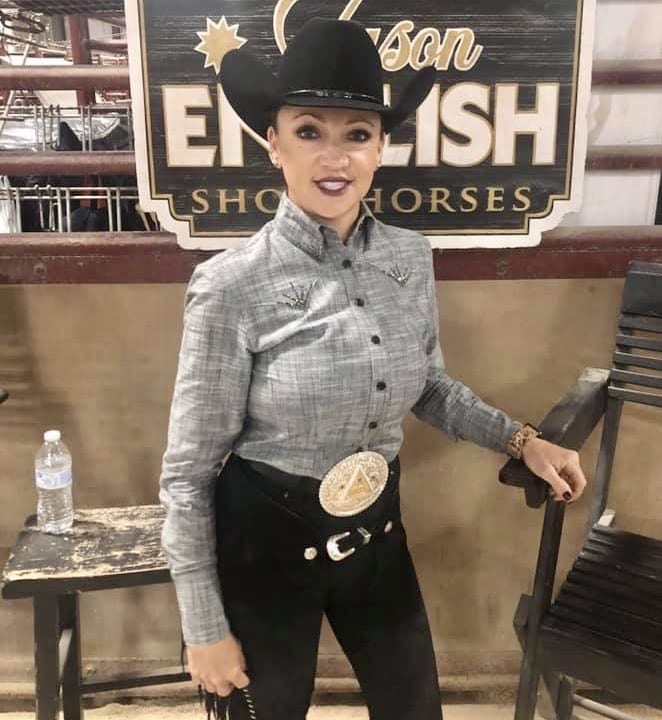 Honesty is a foundational element to a successful client-trainer relationship. Dishonesty roots from many different sources, often a lack of communication or someone with ill intentions. When this trust is broken, the damage is often unable to be repaired. Spotting the warning signs of a dishonest horse trainer is beneficial for an exhibitor.
Honesty is a foundational element to a successful client-trainer relationship. Dishonesty roots from many different sources, often a lack of communication or someone with ill intentions. When this trust is broken, the damage is often unable to be repaired. Spotting the warning signs of a dishonest horse trainer is beneficial for an exhibitor.
There are often many small acts of dishonesty that lead up to the one major problem down the road. Recognizing these red flags beforehand can save the drama, heartache, and loss of money. If something does not feel right, go with the gut feeling and be open about this with the trainer.
Dickerson comments, “Communication again becomes a key component of honesty. If you are honest with your current trainer, they might even help you find a trainer that would help better suit your needs.”
Adrienne adds, “Honesty is the best policy. Approach the situation with class, but also don’t hide things and then talk behind someone’s back. It’s a small world. Word will get back around.”
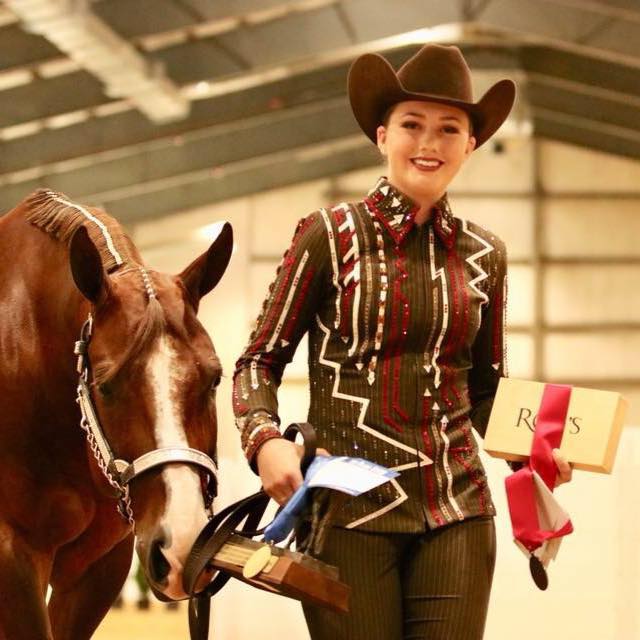 Amateur competitor Clare Swanson of Eugene, Oregon (pictured right) sums this up, “Lack of trust, in my opinion, is the biggest red flag. People send their horses to professionals trusting them with their animal and their well-being. If you’re constantly questioning whether or not they are getting the correct care, you should consider looking for a new trainer.”
Amateur competitor Clare Swanson of Eugene, Oregon (pictured right) sums this up, “Lack of trust, in my opinion, is the biggest red flag. People send their horses to professionals trusting them with their animal and their well-being. If you’re constantly questioning whether or not they are getting the correct care, you should consider looking for a new trainer.”
Unable to achieve goals
Setting and achieving goals are two significant aspects of showing horses. Goal-oriented individuals aim for success. The horse, rider, and trainer are all a team that must work in unison. If one piece of the puzzle does not fit, goals cannot be met.
If a trainer does not help their client on the path to achieving goals, that puzzle piece may not fit any longer.
Dickerson says, “A red flag is when goals stop being met. It doesn’t mean you need to win every time, but this is not a cheap hobby for most people. I believe you need to be paired up with a trainer who can offer you the most in your partnership.”
An exhibitor should be sure that their goals align with their trainer’s. If the entire team does not work in sync, the horse and rider will not achieve their aspirations. It is also crucial that the exhibitor feels challenged, which is the only way to progress.
Professional trainer Shannon Vroegh of Show Horses by Shannon, adds “You have to ask yourself these two important questions. Do you have the same goals as your trainer? Can the program take you to the level that you want to be at?”
Drama in the barn
Drama – something people cannot live with, but also often cannot live without. Certain individuals just seem to thrive in dramatic situations.
At the first sign of drama in the barn, address it. Allowing tension to build, leads to a snowball effect, which can become irreversible if left untreated. Talk to the trainer about concerns and try to find solutions. If a solution cannot be found, then it may be time to switch programs.
Dickerson says, “You need to find a trainer’s program that fits you well. That may take some time, but you’ll know when you find the ‘right fit.’”
Once an exhibitor finds their trainer, horse shows become more enjoyable and relaxing.
An exhibitor must know their preferred teaching style to find the perfect “fit” with the trainer. This minimizes any drama or hardships down the road.
Swanson adds, “Everyone learns differently. If you feel like you need someone stricter, or you’re not getting enough one-on-one time, you might want to think about finding someone that teaches differently.”
Lack of respect
Respect is a two-way street; the client must respect the trainer and visa versa. Exhibitors are clients of the trainer, therefore, the relationship must follow suit. If an exhibitor’s current trainer does not show proper respect for his/her clients, it is time to change programs.
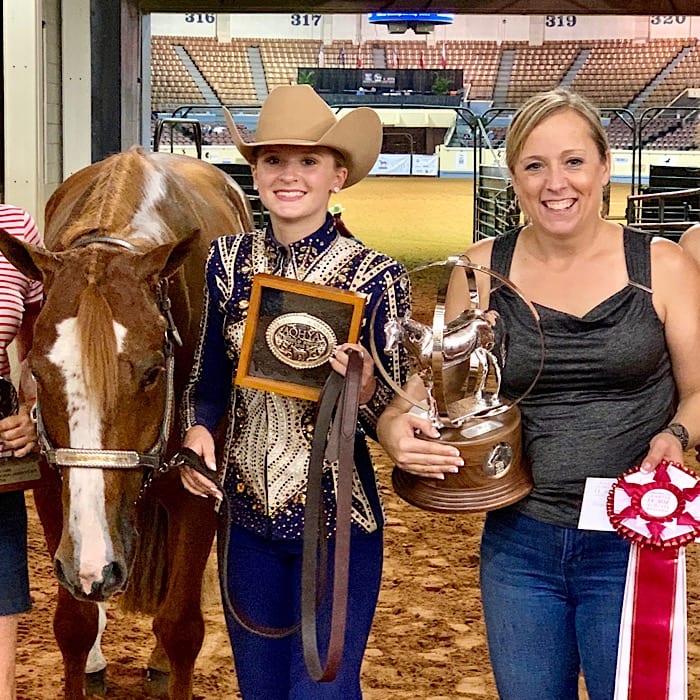 Exhibitors must show proper respect for the trainer as well. This means open communication about concerns and intentions. If the trainer confronts conversations with hostility or rudeness, it is time to switch.
Exhibitors must show proper respect for the trainer as well. This means open communication about concerns and intentions. If the trainer confronts conversations with hostility or rudeness, it is time to switch.
The program also must have respect for the horses. Vroegh (pictured far right) says, “It is important that your horse seems comfortable and progressing or maintaining what is needed.” The horse is half of the team, and their care is essential.
Swanson concludes, “Respect must go both ways for a successful, professional relationship. Always try to keep an open-door conversation with your trainer. If at any point, your concerns or questions are met with constant disrespect, make sure they know your concerns, and if nothing changes, find a better fit.”


